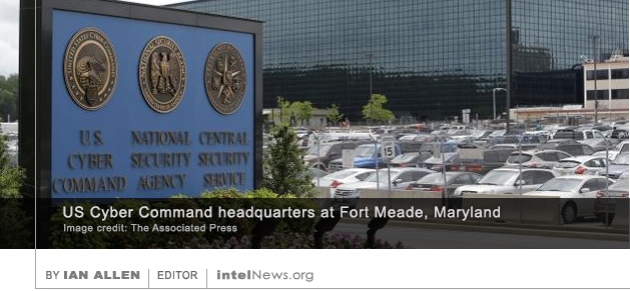Islamic State’s cyber army still ‘largely intact’ despite America’s efforts
June 20, 2017 Leave a comment
 The global reach of the Islamic State through the use of the internet remains “largely intact” despite relentless efforts by some of America’s most advanced cyber warfare experts to neutralize the group’s online presence. It is now over a year since the United States Department of Defense announced that it had launched a cyber war against the Islamic State —the militant Sunni Muslim group that today controls large parts of Syria and Iraq.
The global reach of the Islamic State through the use of the internet remains “largely intact” despite relentless efforts by some of America’s most advanced cyber warfare experts to neutralize the group’s online presence. It is now over a year since the United States Department of Defense announced that it had launched a cyber war against the Islamic State —the militant Sunni Muslim group that today controls large parts of Syria and Iraq.
At that time, the Pentagon’s Cyber Command (USCYBERCOM), put in motion plans that included the deployment of computer viruses, denial-of-service attacks and other cyber weapons against computers, internet servers and cell phone networks belonging to the Islamic State. As intelNews wrote at the time, the idea behind the plan was that an all-out online war against the Sunni militant group would hurt its public image and prevent it from launching armed attacks against targets abroad. Additionally, the Pentagon aimed to disrupt the Islamic State’s ability to recruit new members online, to spread its propaganda and to coordinate operations through the use of encrypted communications.
However, according to The New York Times, American military commanders are disappointed with the Cyber Command’s efforts. The Pentagon is quickly discovering, says the paper, that its cyber warfare methods, which were designed for fixed targets in countries like North Korea and Iran, are ineffective against the mobile and polymorphic cyber army of the Islamic State. In many instances, US Pentagon hackers wipe out online information found on Islamic State servers, only to see it reappear elsewhere online within hours. In other cases, US Cyber Command experts uncover Islamic State information stored on the cloud, but are unable to access it because it is strongly encrypted.
According to The Times, the lack of progress in the cyber war against the Islamic State was one of the reasons why the administration of President Barack Obama sought to replace Admiral Mike Rogers, the head of the National Security Agency, who also led the US Cyber Command —and continues to do so under the Donald Trump administration.
► Author: Ian Allen | Date: 20 June 2017 | Permalink






